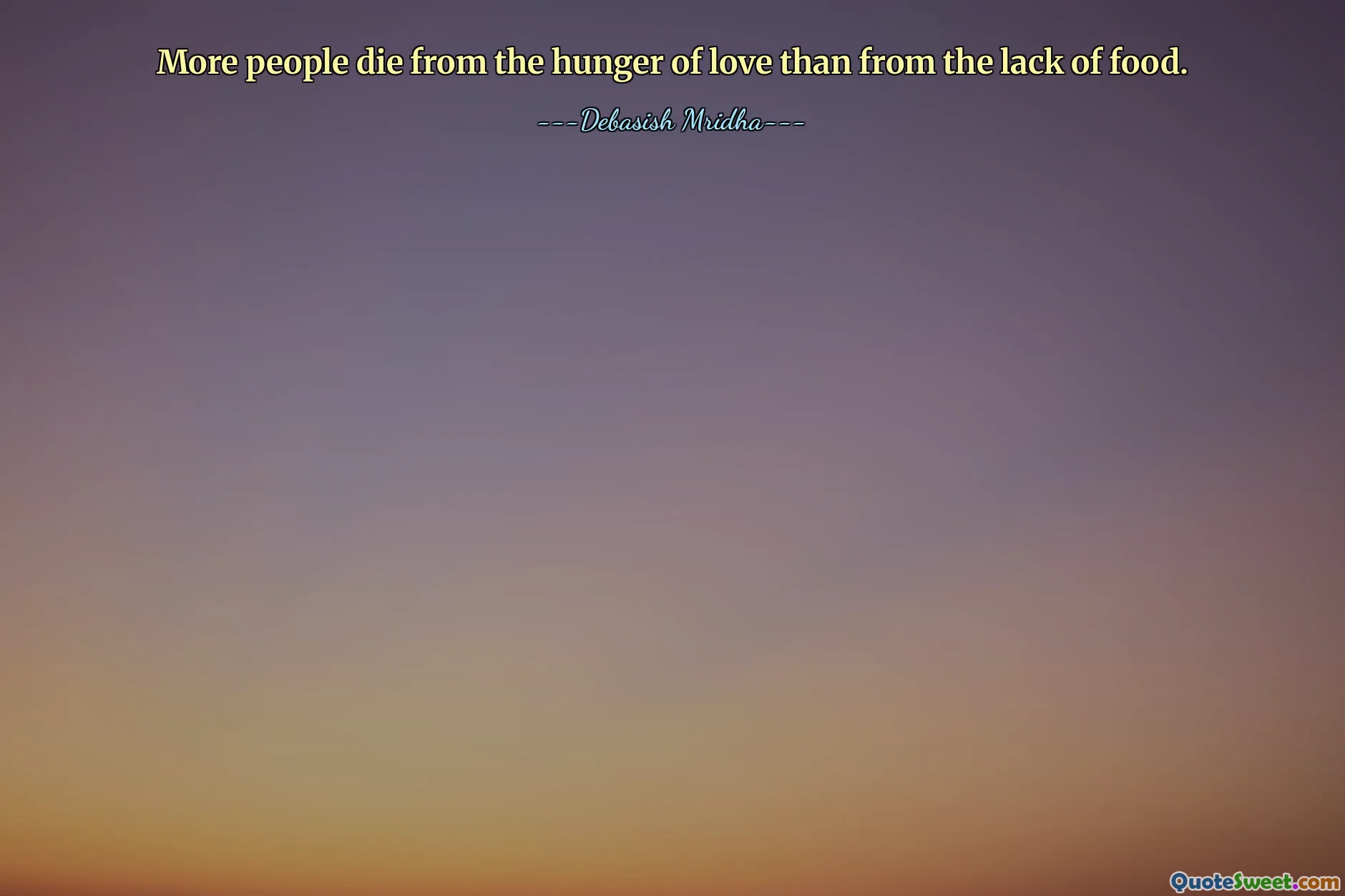
More people die from the hunger of love than from the lack of food.
This poignant quote by Debasish Mridha eloquently contrasts two fundamental human needs: nourishment of the body and nourishment of the heart. At first glance, the physical sustenance required to survive seems to be the utmost priority, yet this statement provokes a deeper contemplation about the emotional and spiritual sustenance disclosed through love and human connection. While the lack of food causes tangible and visible suffering, the hunger for love speaks to a more invisible, yet equally, or perhaps more devastating, form of deprivation.
Love, in its various manifestations—be it familial, romantic, platonic, or self-love—is essential for mental and emotional well-being. Its absence can lead to loneliness, despair, and a profound sense of emptiness that may erode one’s will to live and thrive. The notion that "more people die from the hunger of love" metaphorically suggests that emotional neglect or the absence of meaningful relationships can have fatal consequences, highlighting the necessity for compassion, empathy, and connection in our lives.
This quote serves as a reminder that addressing physical hunger alone is insufficient for holistic human flourishing. The metaphor invokes a call to balance our efforts in combating tangible hardships like poverty and hunger with efforts to foster love, acceptance, and emotional fulfillment. It also encourages introspection on how we prioritize our relationships and emotional health. Ultimately, Mridha’s words resonate as a thoughtful admonition that to truly care for humanity, we must nurture all forms of hunger, including those often overlooked but crucial for life—love and emotional belonging.











